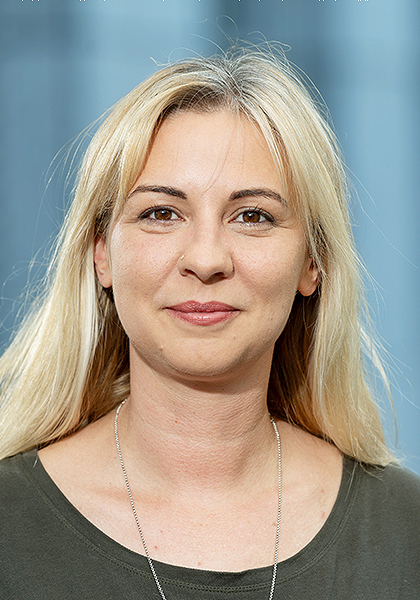Award-Winning 3R Research Reduces Animal Experiments

The 3Rs principle aims to replace, reduce and refine animal experiments. This involves finding alternative methods to testing hypotheses, drugs and treatments, lowering the number of animals used in experiments, and improving the conditions in which they are held or tested. “In its policy on research involving animals, UZH calls for systematic application of the 3Rs principle,” says Elisabeth Stark, Vice President Research at UZH. One example of this is that mice used in experiments are now picked up in a plastic tunnel rather than by the tail. “This is closer to their natural behavior and causes less stress,” confirms Paulin Jirkof, 3R coordinator at the University of Zurich. This is an example of refinement, which is one of the three Rs aiming to curb animal suffering in biomedical research. The two other Rs stand for replacement and reduction. Researchers can replace animal testing for example by using computer simulations or lab-grown tissue cultures. Last but not least, reduction not only means lowering the number of animal experiments but also refers to developing methods that can increase the knowledge gained from the experiments using the same number of animals.

We want to highlight the many efforts being made at the University of Zurich to replace, reduce and refine animal experiments.
As the university’s 3R coordinator, Paulin Jirkof is committed to promoting the 3Rs principle in research and teaching across UZH. The 3Rs principle has had a major impact over the past few decades, she says. “Our awareness has changed.” As a result, the number of animals used in experiments has declined since the 1980s. Members of UZH who have made significant contributions in the field of the 3Rs can now be recognized with the UZH 3R Award. “It’s very important to acknowledge researchers who are actively committed to the 3Rs principle,” says Jirkof. “We want to highlight the many efforts being made at the University of Zurich to replace, reduce and refine animal experiments.” The first award, worth CHF 5,000, has gone to Giuseppe Esposito and Melanie Generali.
Placentas replacing rats
The microsurgical courses of Giuseppe Esposito have revolutionized surgical training. “Many of the skills surgeons need can be trained without having to use animals,” says the chief of service at the Department of Neurosurgery of the University Hospital Zurich and director of the Zurich Microsurgery Lab. Microsurgical training used to be conducted on animals, mostly rats or rabbits. The placenta model eliminates the need for laboratory animals.
“Thanks to the excellent cooperation with the Department of Obstetrics, placentas that would not be used for any other purpose are readily available,” says Esposito. “Thanks to the many vessels of various sizes, placentas offer unique benefits when it comes to training.” According to the neurosurgeon, the model provides an excellent way to simulate the conditions in the surgical room.
Giuseppe Esposito and Luca Regli, director of the Department of Neurosurgery, are extremely happy the success of the placenta model. Since introducing the placenta model, the number of course participants has increased significantly. Feedback has been very positive, and there is a long waiting list of international participants.

Many of the skills surgeons need can be trained without having to use animals.
Unique research facility in Switzerland
Another way to reduce the number of animals in biomedical research is by using induced pluripotent stem cells, or iPSCs. Melanie Generali founded the iPSC Core Facility (iPSCore) at the Institute for Regenerative Medicine (IREM) of UZH. The facility, which is the only one of its kind in Switzerland, helps researchers create and work with these cells.
“When I started doing research with iPSCs, people said that these cells could be differentiated into anything. And now I know that it’s actually true!” For example, it is possible to grow nerve cells or macrophages from a person’s skin or hair cell. The cells can then be used as three-dimensional tissue cultures to test drugs, for example as organoids, or to conduct research on how rare diseases develop. iPSCs thus offer a promising alternative to animal testing, and this has motivated Generali to continue her research. “I want to show that high-quality research is possible without animal testing,” she says.
The iPSCore founder’s commitment to promoting her field also extends beyond her lab. “I think it’s extremely important to pass on my knowledge to junior researchers and to promote the use of iPSCs.” She also represents Switzerland as a member of the European Network for Stem Cell Core Facilities (CorEuStem).

I want to show that high-quality research is possible without animal testing.
«Highlight the successes in the field of 3Rs»
The scientific quality of the projects wasn’t the only criterion when it came to picking the winners: “The implementation and transfer of knowledge and new methods is also extremely important,” says 3R coordinator Jirkof. The award also considers researchers’ commitment to teaching, continuing education and outreach activities. Melanie Generali was recognized because of the great importance her iPSCore facility has for so many researchers, explains Jirkof. “Meanwhile, Giuseppe Esposito has shown how 100 percent of lab animals can be replaced in his courses.” Asked about the benefits for award winners, Elisabeth Stark explains, “The UZH 3R Award aims to honor and highlight the efforts and successes of UZH staff in the field of 3Rs.” One thing is certain: both award-winning research projects will continue to curb the number of animals used in experiments.